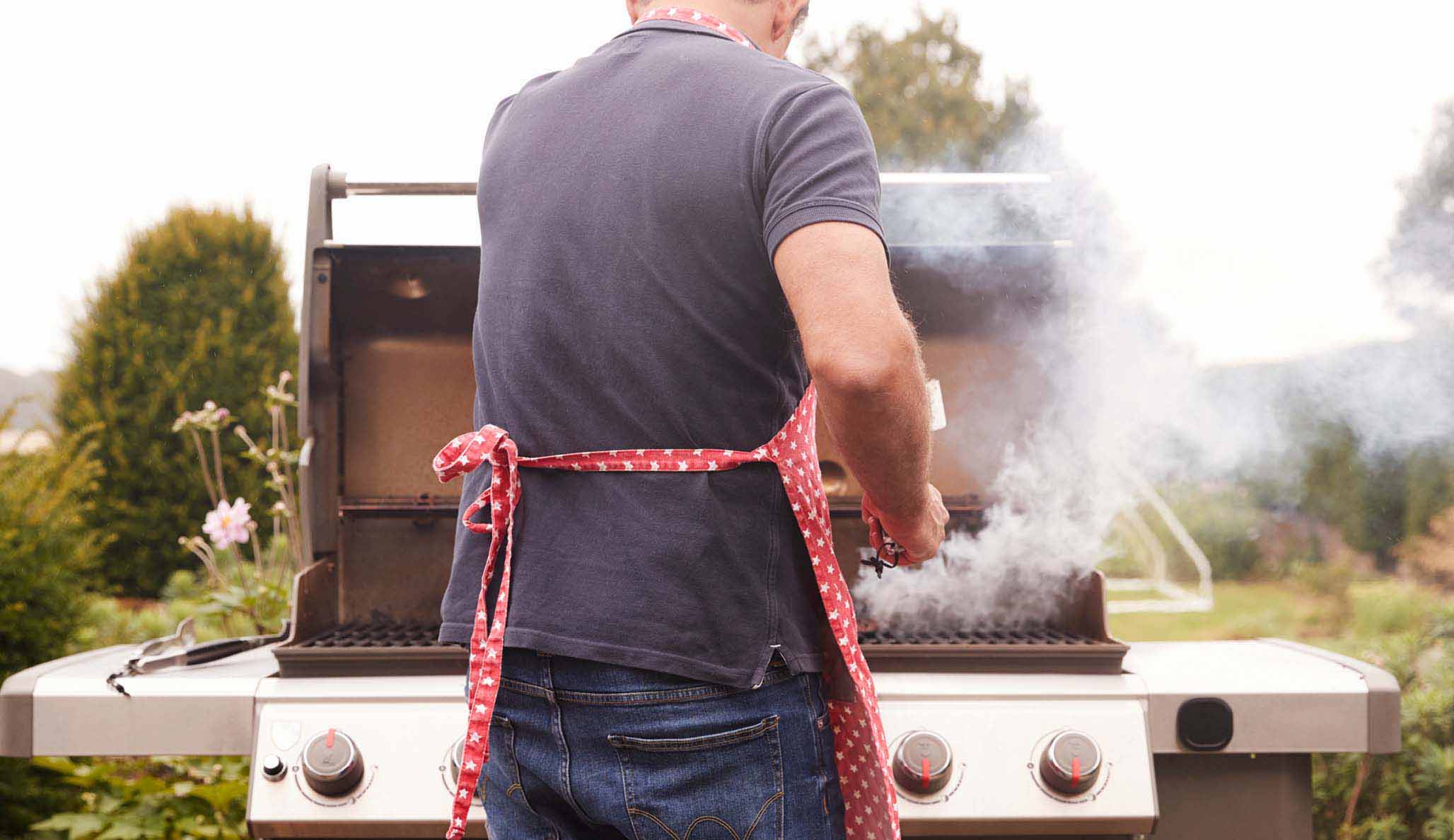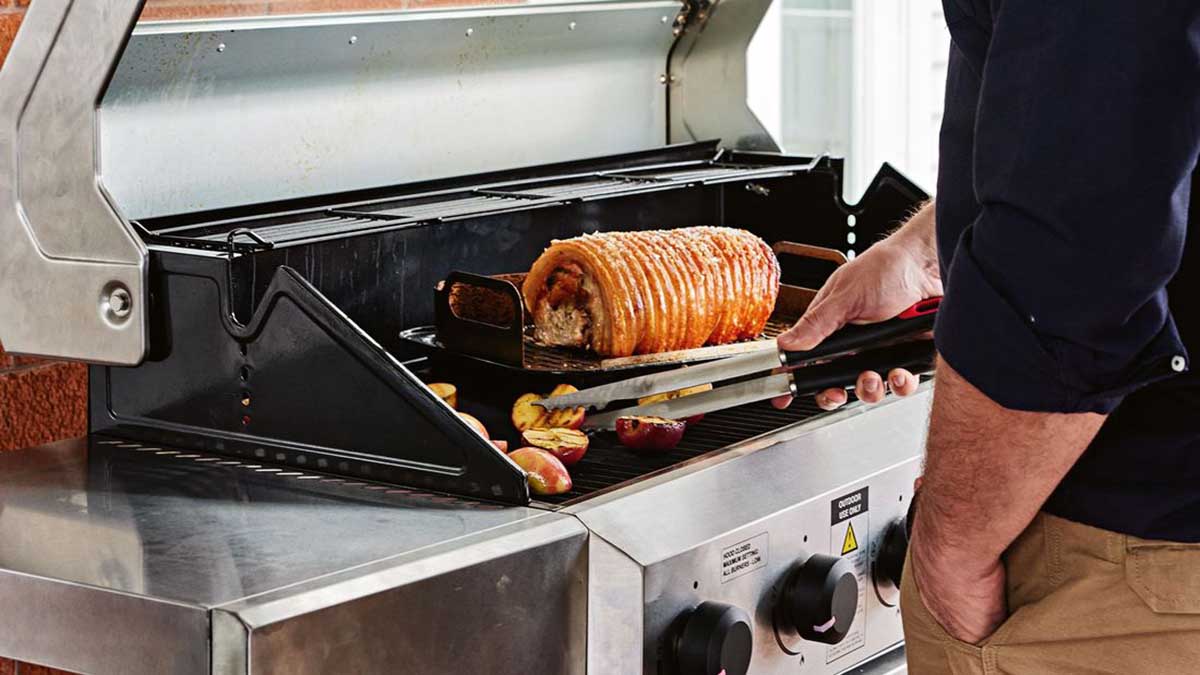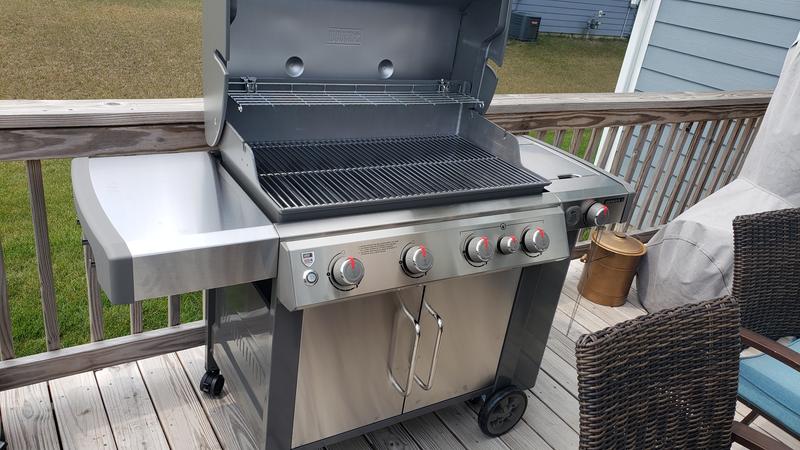
There's something undeniably captivating about grilling seafood, and when it comes to shrimp, it's no different. In this comprehensive guide, we'll walk you through how to cook shrimp on a gas grill to perfection. Shrimp is not only delicious but also incredibly versatile and quick to cook, making it a favorite for barbecue enthusiasts. By the end of this article, you'll be a master at grilling shrimp, delivering succulent, flavorful results every time you fire up that grill.

Why Choose Shrimp for Grilling?
Shrimp offers a multitude of benefits that make it an excellent choice for grilling. Its flavor and texture are enhanced by the smoky, high-heat environment of the grill. Shrimp cooks rapidly, which means less time laboring over a hot grill and more time enjoying the company of friends and family. Moreover, shrimp is rich in protein and low in calories, making it a health-conscious choice for many. When you understand how to cook shrimp on a gas grill, you unlock the potential for impressive yet easy-to-prepare meals that can cater to different dietary preferences.

What You Need to Get Started
Before we dive into the recipe, let's ensure you have everything you need. Essential equipment includes a Gas Grill, a sharp Knife, and a sturdy Cutting Board. Having the right tools can significantly impact the ease and enjoyment of the grilling process.
Ingredients
- 1 pound of large shrimp, peeled and deveined
- 1/4 cup olive oil
- 3 cloves garlic, minced
- Juice of 1 lemon
- 1 tablespoon fresh parsley, chopped
- Salt and pepper to taste
- Optional: 1 teaspoon smoked paprika for an extra flavor boost

Step-by-Step Guide on How to Cook Shrimp on a Gas Grill
1. Preparing the Shrimp
Start by thawing your shrimp if they're frozen. Rinse them under cold water and gently pat dry with paper towels. Using a sharp knife and your cutting board, remove any remaining shells, tails, and veins if needed. This preliminary step is crucial as it ensures evenly cooked and clean shrimp. Marinating shrimp is an excellent way to infuse them with extra flavor. In a large bowl, combine olive oil, minced garlic, lemon juice, chopped parsley, salt, and pepper. Place the prepared shrimp into the bowl and toss until they're well-coated. Allow them to marinate for at least 15-30 minutes. The acid in the lemon juice can start to cook the shrimp if left too long, so don't marinate for more than an hour.
2. Prepping the Grill
Preheat your gas grill to high heat, roughly about 400-450F. Cleaning and preparing the grill grates is essential for ensuring that shrimp dont stick. Use a grill brush to scrub off any residue from prior grilling sessions. Lightly oil the grill grates to create a non-stick surface. You can use a high-smoke-point oil like canola oil for this purpose. By understanding how to cook shrimp on a gas grill, you're ensuring that the shrimp will have those beautiful, enticing grill marks.
3. Skewering (Optional)
If you've ever struggled with shrimp falling through the grill grates, you might consider skewering them. You can use metal or wooden skewers (if you're using wooden skewers, soak them in water for about 30 minutes beforehand to avoid burning). Thread the shrimp onto the skewers, making sure not to overcrowd them. This method also makes it much easier to turn the shrimp and remove them from the grill.
4. Grilling the Shrimp
Place the shrimp directly on the grill grates or on the skewers if you've chosen to go that route. Grill the shrimp for 2-3 minutes per side, turning once during cooking. You'll know they're done when they turn pink and opaque. Be careful not to overcook them, as shrimp can become tough and rubbery if left on the grill for too long. Remember, knowing how to cook shrimp on a gas grill to the right doneness is key to a perfect result.
5. Serving Suggestions
Your grilled shrimp are now ready to enjoy! These shrimp can be served in various ways: as a main dish alongside grilled vegetables, tossed into salads, or even made into shrimp tacos. For an extra citrusy kick, serve with lemon wedges on the side. Sprinkling a little more fresh parsley on top right before serving can also add a burst of color and freshness.

Troubleshooting Common Issues
Even if you closely follow these steps on how to cook shrimp on a gas grill, there might be some common issues you encounter. Here we outline solutions to some of these potential problems:
Overcooked Shrimp
Overcooked shrimp can be tough and unappetizing. Always grill shrimp on high heat but keep a close eye on them. Remember, shrimp cook very quickly, usually within 5-6 minutes in total. If you find your shrimp are often overcooked, try reducing the grill's heat slightly.
Shrimp Sticking to the Grill
To avoid shrimp sticking to the grates, ensure your grill is well-cleaned and oiled. Using a marinade with oil also helps create a non-stick surface for the shrimp. Additionally, using skewers can make it simpler to handle and flip the shrimp without them sticking.
Uneven Cooking
Even-sized shrimp are essential for ensuring even cooking. Make sure all the shrimp you're grilling are roughly the same size. If using skewers, thread them in such a way that they lay flat on the grill, ensuring consistent heat distribution.
Frequently Asked Questions About How to Cook Shrimp on a Gas Grill
Can I Grill Shrimp with the Shell On?
Yes, grilling shrimp with the shell on can help protect the shrimp from the high heat of the grill and make them even more flavorful. Just be sure to clean them thoroughly before grilling. The shell can also help to lock in moisture, resulting in a juicier piece of shrimp. If you choose this method, remember that the grilling time may be slightly longer.
How Do I Know When the Shrimp Are Done?
Shrimp are done when they turn pink and opaque. They should curl slightly into a loose 'C' shape. Overcooking can make them tough, so it's important to remove them from the grill as soon as they reach this stage. Cutting into one of the shrimp to check is also a good way to make sure they are fully cooked.
Can I Use Frozen Shrimp?
You can use frozen shrimp, but it's best to thaw them first. Thawing shrimp in the refrigerator overnight is an ideal method, but if you're short on time, you can place them in a colander and run cold water over them until thawed. This prevents the shrimp from cooking unevenly, which can happen if they are grilled while still partially frozen.
Conclusion: Elevate Your Grilling Game
Mastering how to cook shrimp on a gas grill is a rewarding skill that can elevate your grilling game. The key to perfect shrimp is in the preparation, from choosing fresh shrimp and marinating to preheating the grill and monitoring the cooking time closely. With these tips and tricks, you'll be able to serve up perfectly grilled shrimp at your next barbecue, impressing family and friends alike. For more information on essential grilling tools, check out these Gas Grills, Knives, and Cutting Boards. For more grilling techniques, you might find Casserole on the Grill and Sweet Potatoes articles helpful. Additionally, check out BBQ Right for more expert tips. Cleanup is also crucial, so explore these effective Cookware Cleaners and Cutting Board Oils to maintain your grilling tools. Happy grilling!
As an Amazon Associate, I earn from qualifying purchases.



